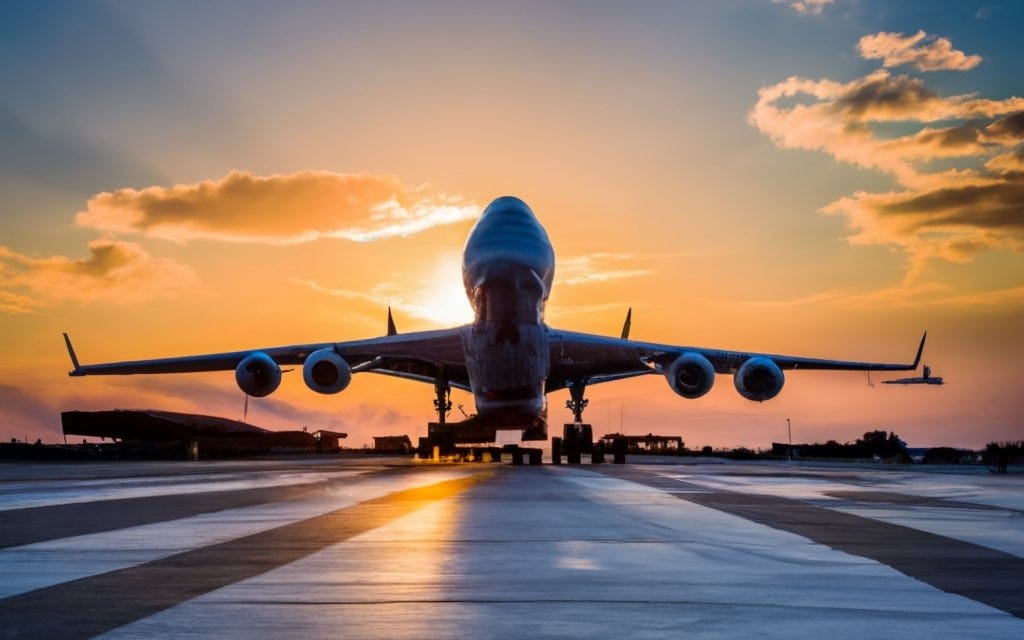How much is air freight from China to Europe?
Air freight is a fast and reliable way to transport goods from one country to another. However, air freight costs can vary depending on many factors, such as the weight, volume, destination, and urgency of the shipment. In this article, we will explain how air freight costs are calculated, what factors affect them, and how to choose the best air freight option for your needs.
Understanding air freight costs
Air freight costs are composed of two main components: the base rate and the surcharges. The base rate is the price per kilogram or per cubic meter of the shipment, depending on which is higher. The base rate is determined by the origin and destination of the shipment, as well as the demand and supply of the air cargo market.
Surcharges are additional fees that are added to the base rate to cover various costs and risks associated with air freight, such as fuel, security, handling, documentation, and insurance. Surcharges can change frequently depending on the market conditions and the policies of the air freight carriers.
Factors affecting air freight costs
There are several factors that can affect the cost of air freight from China to Europe, such as:
Weight and volume: The weight and volume of the shipment are the main factors that determine the base rate of air freight. The higher the weight or volume, the higher the cost. However, air freight carriers use a concept called chargeable weight to calculate the base rate. Chargeable weight is the higher of the actual weight or the volumetric weight of the shipment. Volumetric weight is calculated by multiplying the length, width, and height of the shipment in centimeters and dividing it by a factor of 6000. For example, a shipment that weighs 10 kg and measures 50 x 40 x 30 cm has a volumetric weight of 10 kg (50 x 40 x 30 / 6000 = 10). Therefore, the chargeable weight is 10 kg. However, a shipment that weighs 5 kg and measures 60 x 50 x 40 cm has a volumetric weight of 20 kg (60 x 50 x 40 / 6000 = 20). Therefore, the chargeable weight is 20 kg, and the cost will be higher than the previous shipment.
Origin and destination: The origin and destination of the shipment also affect the base rate of air freight. Different airports have different rates depending on the demand and supply of the air cargo market, the competition among the air freight carriers, and the availability of the infrastructure and facilities. Generally, the more popular and busy the airport, the lower the rate. For example, air freight from Shanghai to Frankfurt may be cheaper than air freight from Chengdu to Warsaw, because Shanghai and Frankfurt are major hubs for air cargo in China and Europe, respectively.
Seasonality and urgency: The seasonality and urgency of the shipment can also influence the cost of air freight. During peak seasons, such as holidays, festivals, or events, the demand for air freight increases, and so does the price. Similarly, if the shipment is urgent and needs to be delivered within a short time frame, the cost will be higher than a normal shipment. Therefore, it is advisable to plan ahead and book the air freight in advance to avoid paying extra fees or facing delays.
Type and nature of the goods: The type and nature of the goods being shipped can also affect the cost of air freight. Some goods may require special handling, packaging, or documentation, which can increase the cost. For example, perishable goods, such as food or flowers, may need refrigeration or insulation, which can add to the weight and volume of the shipment. Dangerous goods, such as chemicals or batteries, may need special safety measures and certifications, which can add to the paperwork and fees. Fragile goods, such as glass or ceramics, may need extra protection and insurance, which can add to the risk and cost.
The China to Europe air freight route
China and Europe are two of the largest and most important markets in the world, and the trade between them is growing every year. According to the European Commission, China was the EU’s largest trading partner in 2020, with a total trade value of €586 billion. The EU exported goods worth €202.5 billion to China, and imported goods worth €383.5 billion from China.
Air freight is one of the main modes of transportation for the trade between China and Europe, especially for high-value, time-sensitive, or perishable goods. According to the International Air Transport Association (IATA), China was the largest air cargo market in the world in 2020, with a market share of 19.8%. Europe was the second largest air cargo market, with a market share of 16.8%.
There are many air freight carriers that offer services from China to Europe, such as DHL, FedEx, UPS, [China Airlines], [Air China], [Lufthansa], [KLM], and [Air France]. These carriers operate flights from various airports in China, such as Beijing, Shanghai, Guangzhou, Shenzhen, Chengdu, Chongqing, Xiamen, and Hong Kong, to various airports in Europe, such as Frankfurt, Amsterdam, Paris, London, Brussels, Madrid, Milan, and Warsaw.
The average duration of air freight from China to Europe is about 7 to 10 days, depending on the origin, destination, carrier, and transit time. The transit time is the time spent by the shipment at the intermediate airports or hubs before reaching the final destination. Some carriers may offer direct flights from China to Europe, which can reduce the transit time and the risk of delays or damages. However, direct flights may also be more expensive than indirect flights, which can have multiple stops and transfers.
Calculating air freight costs
To calculate the cost of air freight from China to Europe, you need to know the following information:
The weight and volume of the shipment
The origin and destination airports
The type and nature of the goods
The desired delivery time
Once you have this information, you can use online tools, [Freightos], or [World Freight Rates], to get an instant quote from different air freight carriers. These tools will compare the base rates and surcharges of various carriers and give you the best options for your shipment.
Alternatively, you can also contact the air freight carriers directly or use a freight forwarder, such as Xianrong Global , to get a customized quote for your shipment. A freight forwarder is a company that acts as an intermediary between you and the air freight carriers, and can handle the entire logistics process for you, from booking the air freight, to arranging the pickup and delivery, to handling the documentation and customs clearance.
Tips to reduce air freight costs
Air freight can be expensive, but there are some ways to reduce the cost and optimize the efficiency of your shipment, such as:
Optimize the packaging: The packaging of your shipment can affect the weight and volume of your shipment, and therefore the cost. You should use the appropriate packaging materials and methods to protect your goods from damages, but also to minimize the space and weight of your shipment. You should also avoid overpacking or under packing your goods, as this can cause problems during the handling and transportation of your shipment.
Consolidate your shipments: If you have multiple shipments going to the same destination, you can consolidate them into one larger shipment, which can reduce the cost per unit and the paperwork. However, you should also consider the time and frequency of your shipments, as consolidating them may delay the delivery or increase the inventory costs.
Choose the right carrier and service: Different carriers and services may have different rates and transit times for your shipment. You should compare the options and choose the one that best suits your needs and budget. You should also consider the reliability and reputation of the carrier, as well as the quality and availability of their customer service.
Plan ahead and book in advance: Planning ahead and booking your air freight in advance can help you avoid peak seasons, surcharges, and delays. You can also benefit from lower rates and better availability of the carriers. However, you should also be flexible and prepared for any changes or contingencies that may occur during the transportation of your shipment.
Comparing different air freight carriers
As mentioned earlier, there are many air freight carriers that offer services from China to Europe, and each one has its own advantages and disadvantages. Here are some of the main factors to consider when comparing different air freight carriers:
Price: The price is the most obvious factor to consider when choosing an air freight carrier. However, you should not only look at the base rate, but also the surcharges and the hidden fees that may apply to your shipment. You should also compare the price with the value and quality of the service that the carrier provides.
Speed: The speed is another important factor to consider when choosing an air freight carrier. The speed depends on the origin and destination of the shipment, the carrier’s network and schedule, and the transit time and frequency of the flights. You should choose a carrier that can deliver your shipment within your desired time frame, and that can also offer tracking and updates on the status of your shipment.
Reliability: The reliability is the third factor to consider when choosing an air freight carrier The reliability refers to the carrier’s ability to deliver your shipment safely, securely, and on time, without any damages, losses, or delays. You should choose a carrier that has a good track record and reputation in the air cargo industry, and that can handle any issues or emergencies that may arise during the transportation of your shipment.
Service: The service is the fourth factor to consider when choosing an air freight carrier. The service refers to the carrier’s customer service, communication, and support, as well as the additional services and options that they offer, such as insurance, customs clearance, door-to-door delivery, and online tracking. You should choose a carrier that can provide you with the best service and solutions for your shipment, and that can also respond to your queries and requests promptly and professionally.
Sustainability: The sustainability is the fifth factor to consider when choosing an air freight carrier. The sustainability refers to the carrier’s environmental and social impact, and how they manage their carbon footprint, energy consumption, waste management, and social responsibility. You should choose a carrier that is committed to reducing their environmental impact and improving their social performance, and that can also help you achieve your sustainability goals and standards.
Additional fees and charges in air freight
Besides the base rate and the surcharges, there may be some additional fees and charges that apply to your air freight shipment from China to Europe, such as:
Pickup and delivery fees: These are the fees that the carrier or the freight forwarder charges for picking up your shipment from your location and delivering it to the destination. These fees may vary depending on the distance, the accessibility, and the availability of the pickup and delivery services.
Documentation fees: These are the fees that the carrier or the freight forwarder charges for preparing and processing the necessary documents for your shipment, such as the air waybill, the commercial invoice, the packing list, and the certificate of origin. These fees may vary depending on the complexity and the requirements of the documentation.
Customs fees: These are the fees that the customs authorities charge for clearing your shipment at the origin and destination countries. These fees may include the customs duties, the taxes, the inspection fees, and the storage fees. These fees may vary depending on the value, the type, and the origin of the goods, as well as the customs regulations and policies of the countries involved.
Insurance fees: These are the fees that the carrier or the freight forwarder charges for providing insurance coverage for your shipment, in case of any damages, losses, or delays during the transportation. These fees may vary depending on the value, the type, and the nature of the goods, as well as the level and the terms of the insurance.
Air freight insurance and customs duties
Air freight insurance and customs duties are two important aspects of air freight that you should be aware of and prepared for, as they can affect the cost and the risk of your shipment.
Air freight insurance is a type of insurance that covers your shipment against any damages, losses, or delays that may occur during the transportation. Air freight insurance can protect you from financial losses and liabilities, and can also provide you with compensation and assistance in case of any claims or disputes. Air freight insurance is usually optional, but highly recommended, especially for high-value, fragile, or perishable goods.
Customs duties are the taxes that the customs authorities charge for importing or exporting goods from one country to another. Customs duties are usually based on the value, the type, and the origin of the goods, and are calculated according to the customs tariff and the trade agreements of the countries involved. Customs duties are usually mandatory, and must be paid before the shipment can be cleared and released by the customs.







Comments
Post a Comment